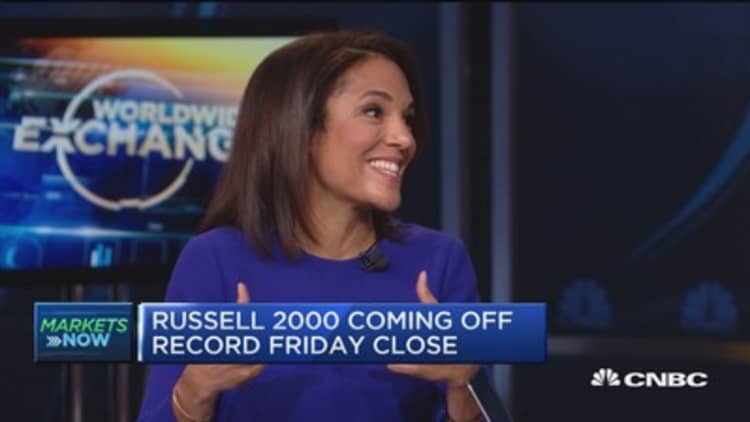
Oil's bounce on Monday was thanks to OPEC members and Russia saying they will cooperate to reach an agreement this month, RBC's Helima Croft said Monday.
Reaching its highest prices since Nov. 2, Brent crude oil futures were up 89 cents at $47.75 a barrel Monday morning. U.S. benchmark West Texas Intermediate was up 82 cents at $46.51 a barrel.
"The tea leaves look like they're lining up now for some type of agreement come November 30," said Croft, RBC Capital Markets managing director and global head of commodity strategy.
Major skepticism following a deal OPEC struck in September to cut production is now being countered by member countries saying they don't want to be the obstacles to reaching an agreement, Croft told CNBC's "Worldwide Exchange."
One variable to keep in mind is President-elect Donald Trump, whose stance on drilling for oil within the United States could prove bearish for oil supply, the strategist said.
On the other hand, "Iran could be a big issue under Donald Trump['s administration]. If they reinstate sanctions, that would obviously be quite bullish for oil," Croft said.
Infrastructure spending is a cornerstone of the Trump administration's plans, which Croft said could mean more fracking on U.S. soil and an expansion of measures like the Keystone pipeline.
The Dakota Access pipeline has been the site of recent protests, which on Sunday night escalated to more violent clashes after several hundred protesters tried to breach a barrier set up by authorities.
"I don't think those protesters are going to get much comfort in a Trump administration," Croft said.
Croft said Trump's plans could translate into deregulation across much of the oil industry, painting a bleak picture for climate change supporters as well.
"I think ... you could see the U.S. pulling back on renewable fuel standards, pulling back on CAFE standards," she said, referring to the Corporate Average Fuel Economy standards set to reduce the United States' dependence on foreign oil.
"I think that could actually be supportive for oil demand. But ... I don't think climate change is going to be a big issue for this administration," Croft said.


